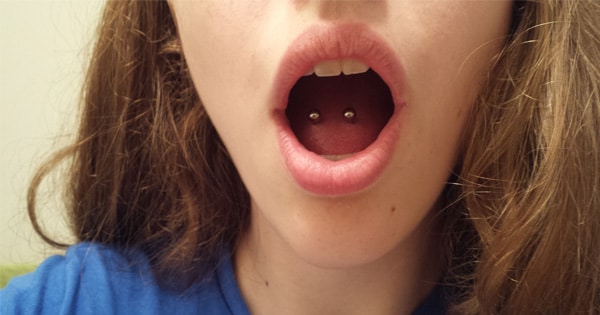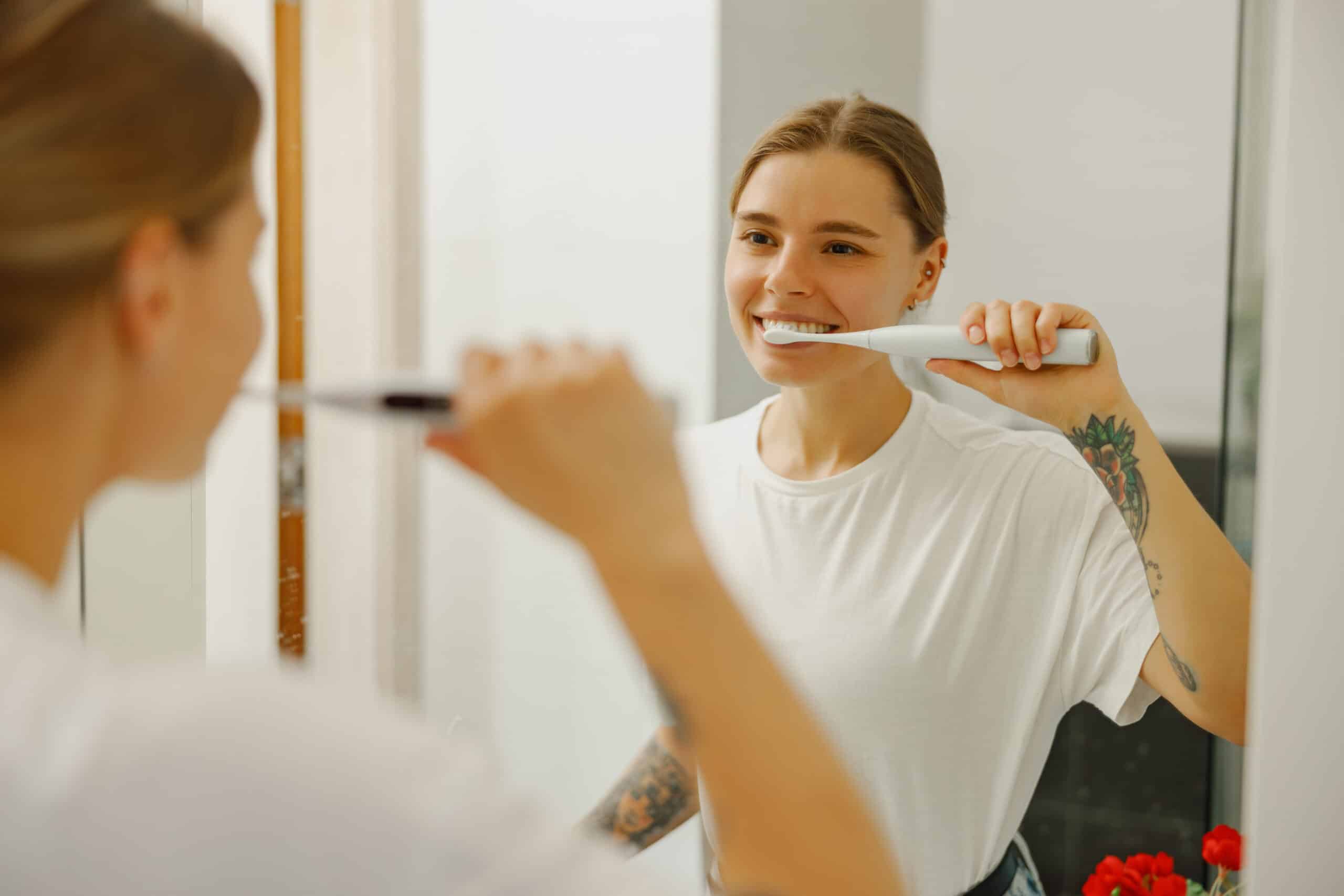Self-expression can be an interesting thing, especially when it comes to oral piercings. It used to be just ears and a few noses. But today, if it can be blinged, someone’s blinged it.
Lips and tongues are among the more popular body parts for oral piercings, and if done with class, it can be super awesome. But it won’t be if you don’t take care of it — and given its proximity to bacteria, proper care is a must.
For the first few days or weeks, a piercing is akin to an open wound. And given that your mouth is your body’s door to dirt and bacteria — not to mention a natural producer of mucous — your oral piercing site is at risk for infection. And if that happens, it could disrupt your ability to eat or breathe.
So for the first few weeks, it’s important to rinse with saltwater multiple times a day — and especially after eating and before bed. This will clean the piercing site thoroughly and kill any bacteria settling there.
You should also soap the ring or stud thoroughly in the shower. This will not be enjoyable with a tongue piercing, but it beats a nasty infection.
If you do experience swelling, ice chips are your best friends. But if that proves ineffective, Advil or Tylenol will do the trick. And be sure to sleep with your head above your heart for the first few days or weeks to prevent swelling.
Finally, and most importantly, be extra diligent with brushing and flossing. Should a food particle make its way into your piercing site, it could result in a nasty situation which definitely won’t be awesome.
Already have oral piercings?
Remember to take it out when you’re playing sports. Yes, it may look cool, but it’s way less cool when it’s being ripped out of your face by an errant finger.
Speaking of being ripped out, check periodically to make sure the ring or stud is tight, lest it fall out and down your throat.
When it comes to choosing jewelry, anything that is in contact with the inside of your mouth should be soft (i.e. plastic and not metal). Metal jewelry that comes in contact with your gums and teeth can cause significant damage that is very difficult to repair.
And if you notice signs of infection like swelling, pain, fever, chills, shaking or a red-streaked appearance around the oral piercing site, make an appointment and we’ll have a look.








